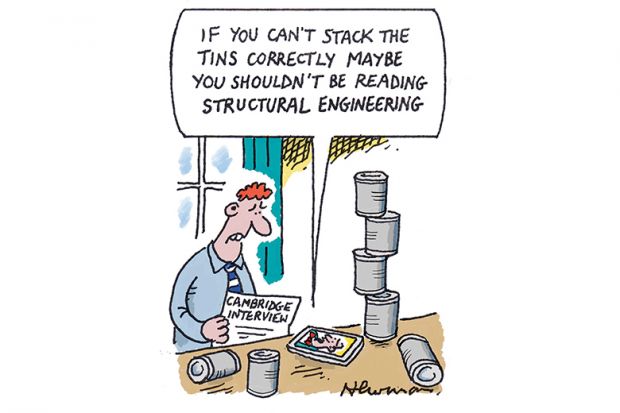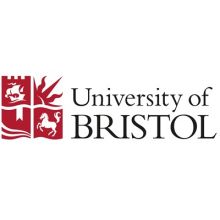
Just when you thought there would never be a more ingenious use of two baked bean cans than linking them with a piece of string to create a “telephone”, the University of Cambridge has trumped it. One of the world’s most prestigious universities, Cambridge sent out handy advice to prospective students who cannot access a tablet for online admission interviews: use your phone and a couple of cans instead. The university needs to see prospective students’ working out as part of the interview process for certain subjects, and those unable to access a tablet were advised to perch their phone on the cans and write on a piece of paper, reported Schools Week. The university’s emailed instructions state: “There is a method with two tin cans to balance the phone on while you work, which I have attached.” But concerns have been raised that the proposal will put students from less privileged backgrounds at a disadvantage. “This really did read to me as one of the most overt barriers to access I’ve ever seen,” said one state school headteacher.
Perhaps the hordes of Egyptologists who spend countless hours toiling in the harsh desert heat have been doing it wrong all along. After all, Egyptian archaeologist Abeer Eladany uncovered a major ancient treasure without even stepping outside. Ms Eladany, a curatorial assistant, was reviewing the University of Aberdeen’s Asian collection and found an old cigar tin emblazoned with Egypt’s former flag. Inside was a small collection of wooden splinters that were soon identified as 5,000-year-old pieces of an artefact found in the Great Pyramid of Giza and lost when they were donated to the university 74 years ago. “Once I looked into the numbers in our Egypt records I instantly knew what it was…I have worked on digs in Egypt but never imagined it would be here, in northeast Scotland, that I’d find something so important to the heritage of my country,” said Ms Eladany, according to The Times. The purpose of the splinters remains unknown, although it has been suggested that they may have been an offering or intended as tools to facilitate a pharaoh’s passage to the afterlife.
Doctorates often seem to be drawn into political rows these days, so perhaps it should come as no surprise that Jill Biden’s PhD in education became the subject of snarking before she has even entered the White House. Her doctorate, and use of the term “Dr”, came under fire from a Wall Street Journal op-ed that referred to the future first lady as “kiddo” and the title of her dissertation on student retention in community colleges as “unpromising”. In an interview with comedian Stephen Colbert, Dr Biden gave a measured response, saying that the tone of the piece by author Joseph Epstein had been a “surprise” given the doctorate was something “I worked so hard for”, reported Politico. Others were more direct. “Sexist and shameful”, was the view of Elizabeth Alexander, Dr Biden’s future communications director.
Perhaps if Jill Biden had focused her doctorate on supernatural monsters that could have meted some retribution to her detractors then she would have been left alone. This was the subject of a thesis by a 73-year-old Japanese grandmother who has received a doctorate after studying a picture scroll dating back hundreds of years, depicting the “Night Parade of a Hundred Demons”, The Japan Times reported. Misako Nagura’s doctorate comes almost 20 years after she first pursued an undergraduate degree in literature at Aichi Prefectural University in her fifties. The parade of supernatural creatures known as oni and yōkai is a major part of folklore in Japan but is often the subject of scholarly debate, the news site reported.
Being left in the dark is an apt description for how some students have been treated during the coronavirus pandemic so it is perhaps fitting to hear that is pretty much what happened to a group who were self-isolating in a flat at the University of Bristol. The students had to spend several days with only small desk lamps to light their rooms because their self-isolation, due to one of them testing positive for coronavirus, meant nobody was allowed to come and fix the main lighting that had broken, The Independent reported. The university and accommodation provider Unite Students said that the issue had been “fully resolved” the day after the students finished their isolation period.
Register to continue
Why register?
- Registration is free and only takes a moment
- Once registered, you can read 3 articles a month
- Sign up for our newsletter
Subscribe
Or subscribe for unlimited access to:
- Unlimited access to news, views, insights & reviews
- Digital editions
- Digital access to THE’s university and college rankings analysis
Already registered or a current subscriber?





